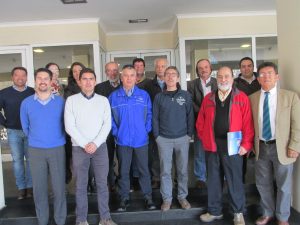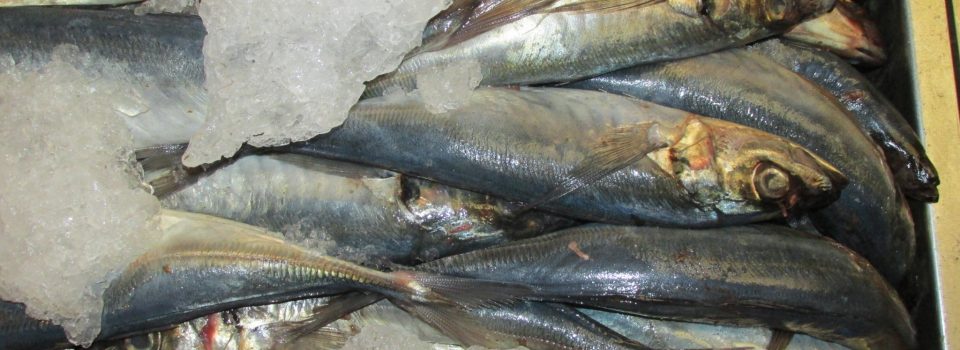National and International Scientists met to improve Jack mackerel research.
May 8th, 2017
Convened by the Fishing Promotion Institute (Instituto de Fomento Pesquero) (IFOP) a renowned Group of national and international scientists meet in Valparaiso to devise improvements in research with the acoustic method to be carried out on jack mackerel resource in central Chile’s oceanic waters. This scientific reflection will last three days and will mean a contribution for the leading analysis to the 2018 management plan.
The workshop “Determination of study field for jack mackerel hydroacoustic assessment integrating probable presence of the resource in areas Central South Chile “. Is being held between May 3 to 5, at Hotel Diego de Almagro, Valparaíso. This activity is organized by the Fishing Promotion Institute (Instituto de Fomento Pesquero) (IFOP) and accounted the participation of scientists from the Fishing Research Institute from the VIII Region (INPESCA), Universidad Católica de Valparaíso, Institute of Research for development (IRD) of France and the IFOP. It also had the participation of officers from the Undersecretariat for Fisheries and Aquaculture, Members of the Scientific Committee and fishing experts from private sector.
This workshop aims to determinate cruises research area for acoustic assessment of jack merckerel incorporating among other elements probable fishing zones for the resource (ZPPJ). This activity will also allow to share studies about preferred jack mackerel habitat associated environmental facts, probable fishing zones characterization and methodology to determinate such zones.
Mauricio Gálvez, Chief of IFOP’s Fishing Research Division, explained that “this workshop created by IFOP will not only improve scientific research techniques over this important fishing resource but will also represent a Chilean contribution to discussions that will be held in the South Pacific Regional Fishing Organization Scientific Committee discussions.
Furthermore, José Córdova IFOP researcher and project leader, added “the workshop that we are developing is important because in recent years assessments of jack mackerel biomass in the Southern Central area have presented some flaws and its results have not been entirely satisfactory; We have failed to lift these outcomes last year 2015, a specific evaluation and this is product on one hand of the impaired condition in terms of distribution. Under the current scenario of low abundance of jack mackerel, fishing areas are highly variable and the sampling scheme that we were applying had been quite satisfactory when we had plenty of jack mackerel, under current scenario the applied design requires adaptation to the situation that the resource presents. That’s why we originated this workshop to see how we can improve with contributions and studies of other experts in jack mackerel. From this point of view we believe that evaluation is going to improve and that is the central objective of this workshop.”
François Gerlotto, researcher at the Research Institute for Development (IRD) of France, and who also works in the jack mackerel from the South Pacific as an expert for the European Union, expressed “the importance of this workshop is the theme, what’s happening with jack mackerel, what can we do to see it, measure their abundance, see it in a vast area, where scientists financial resources are limited” where the scientific ship time is limited, and where no one knows exactly where the resource is. So far, there is a somewhat deterministic vision, which assumes that things are repeated and then can be easily would be where the fish at the time of the cruise. Today things have changed for many reasons and there is modeling the distribution area of the fish to be able to anticipate where will be found at the time of the survey, and that modeling is very interesting at the scientific level, since it requires a knowledge of all areas; environmental, oceanographic, physical, biological, fishing”
